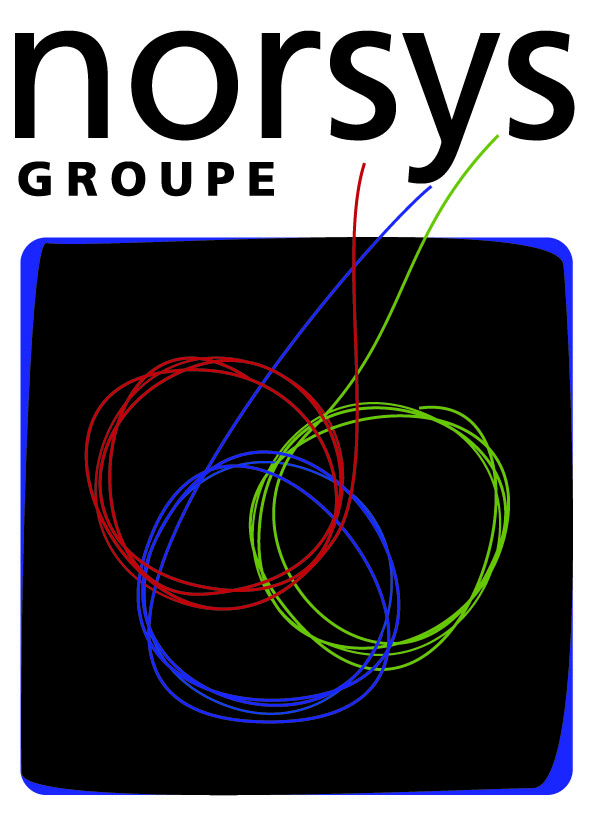

norsys

Hauts-de-France, France
February 2019
Computer programming services
Service with Minor Environmental Footprint
France,
Morocco
norsys is an IT services company founded in 1994 in north of France, composed of 7 agencies in France and Morocco, gathering more than 700 employees. 60% of its activities are dedicated towards the health sector, leading projects on behalf of public and private organisations. norsys' development model is based on the concept of global performance: constantly looking for a balance between economic, human and environmental impacts. norsys thus created its foundation in 2003, obtained the label for non discrimination and professional equality in 2005, the label Great Place to Work in 2010, ISO 26 000 exemplarity level in 2013. norsys est une Entreprise de Services Numériques regroupant plus de 500 collaborateurs et créée en 1994 dans le nord de la France, composée de 7 agences en France, une au Maroc. 60% de ses activités se font dans le domaine la santé à travers la réalisation de projets pour le compte d'acteurs publics et privés. Le modèle de développement de norsys ? La performance global : la recherche d'un équilibre entre les finalités économiques, humaines et environnementales. norsys a ainsi créé sa fondation en 2003, a obtenu le label non discrimination et égalité professionnelle en 2005, le label Great Place to Work en 2010, le label ISO 26 000 niveau exemplaire en 2013.
Overall B Impact Score
Governance 20.7
Governance evaluates a company's overall mission, engagement around its social/environmental impact, ethics, and transparency. This section also evaluates the ability of a company to protect their mission and formally consider stakeholders in decision making through their corporate structure (e.g. benefit corporation) or corporate governing documents.
What is this? A company with an Impact Business Model is intentionally designed to create a specific positive outcome for one of its stakeholders - such as workers, community, environment, or customers.
Workers 31.3
Workers evaluates a company’s contributions to its employees’ financial security, health & safety, wellness, career development, and engagement & satisfaction. In addition, this section recognizes business models designed to benefit workers, such as companies that are at least 40% owned by non-executive employees and those that have workforce development programs to support individuals with barriers to employment.
Community 39.9
Community evaluates a company’s engagement with and impact on the communities in which it operates, hires from, and sources from. Topics include diversity, equity & inclusion, economic impact, civic engagement, charitable giving, and supply chain management. In addition, this section recognizes business models that are designed to address specific community-oriented problems, such as poverty alleviation through fair trade sourcing or distribution via microenterprises, producer cooperative models, locally focused economic development, and formal charitable giving commitments.
What is this? A company with an Impact Business Model is intentionally designed to create a specific positive outcome for one of its stakeholders - such as workers, community, environment, or customers.
Environment 11.4
Environment evaluates a company’s overall environmental management practices as well as its impact on the air, climate, water, land, and biodiversity. This includes the direct impact of a company’s operations and, when applicable its supply chain and distribution channels. This section also recognizes companies with environmentally innovative production processes and those that sell products or services that have a positive environmental impact. Some examples might include products and services that create renewable energy, reduce consumption or waste, conserve land or wildlife, provide less toxic alternatives to the market, or educate people about environmental problems.
Customers 7.5
Customers evaluates a company’s stewardship of its customers through the quality of its products and services, ethical marketing, data privacy and security, and feedback channels. In addition, this section recognizes products or services that are designed to address a particular social problem for or through its customers, such as health or educational products, arts & media products, serving underserved customers/clients, and services that improve the social impact of other businesses or organizations.
What is this? A company with an Impact Business Model is intentionally designed to create a specific positive outcome for one of its stakeholders - such as workers, community, environment, or customers.